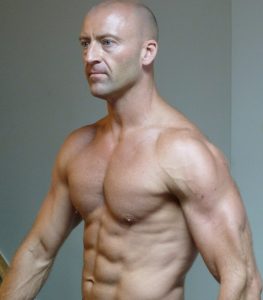
An article at the Poliquin group purports to give the pros and cons of intermittent fasting, but it actually consists entirely of cons. There are many arguable “facts” in the article, for example, fasting can cause women’s ovaries to “shut down”. This is a clear case of confounding fasting, which doesn’t necessarily result in reduced calories, with undernutrition, which usually occurs in female atheletes who are expending huge amounts of energy and don’t eat enough. A lot of the other assertions in the article are just that, assertions, or wild extrapolations based on handpicked studies.
Another aspect of the article is giving credence to a lot of whining; yes, you might once in a while actually get hungry while doing IF. Poor dears.
But let’s give the article it’s due; in its totality, the article claims that intermittent fasting is at the least suboptimal for bodybuilders, athletes, and anyone who wants to maintain and grow a high muscle mass. They have a point. If you’re a college or professional athlete, or someone cranking out four or five heavy weightlifting sessions a week, intermittent fasting may not be right for you. I do dispute the contention that five or six small meals a day are necessary for optimal muscle growth, but on the other hand, going for 16 hours without food on a regular basis might not be best for that either. I myself don’t fast on workout days or for about 36 hours after, because you need food to rebuild from a heavy workout.
Unfortunately, the vast majority of people don’t care about putting on muscle. Over 65% of the American population is overweight or obese, and they need to lose fat, for which intermittent fasting is quite efficacious. Probably if you’re reading here (or over at the Poliquin Group) you’re not one of those people; you’re in decent shape and want to know how to get in better shape. But IF has become, if not exactly popular, at least well-known, for a reason: it works well in shedding fat.
However, the larger point I want to make here is regarding the growth-longevity trade-off. For those who have not heard of this, it is nicely reviewed and summed up in a paper by Blagosklonny and Hall, Growth and aging: a common molecular mechanism. (I have learned a huge amount of this topic by reading the papers of Blagosklonny, of which there are a large number. Anyone interested in this topic cannot ignore him.) The abstract:
It is commonly assumed that growth and aging are somehow linked, but the nature of this link has been elusive. Here we review the aging process as a continuation of TOR-driven growth. TOR is absolutely essential for developmental growth, but upon completion of development it causes aging and age-related diseases. Thus, the nutrient-sensing and growth-promoting TOR signaling pathway may provide a molecular link between growth and aging that is universal from yeast to human.
In essence it is simple: mTOR, a physiological nutrient sensing pathway, is essential for normal growth; mutant lab animals that have the mTOR gene deleted die either as a fetus or shortly after birth, a fatal mutation. But the continual working of mTOR after adulthood causes aging.
Given the state of current knowledge, we can state that there is no way around the growth-longevity trade-off: the more growth, the more the aging process advances.
And what causes mTOR to be activated? Food, for one thing, and carbohydrates and protein especially. So the more protein you eat, the more mTOR will be activated.
What else activates mTOR? You guessed it, resistance training: Akt/mTOR pathway is a crucial regulator of skeletal muscle hypertrophy and can prevent muscle atrophy in vivo. Sad but true: all of us muscle heads may be promoting the aging of our bodies by lifting and eating protein. There is something of a paradox here, namely that exercise is a healthy activity, and resistance training is no exception. The paradox can perhaps be resolved by noting that exercise will help you live healthily for your three score and ten – or whatever it is now, 81 or something – but if you want to have a shot at being a centenarian, perhaps not.
There’s all kinds of evidence for a growth-longevity trade-off, which I couldn’t possibly hope to cover in a blog post, so if interested, read Blagosklonny. (Added: Growth Hormone Receptor Deficiency is Associated With a Major Reduction in Pro-aging Signaling, Cancer and Diabetes in Humans. This is in humans.)
Back to intermittent fasting. Calorie restriction has been shown to be perhaps the single best anti-aging regimen known, and it works with virtually every animal tested. (I seem to recall that it failed in fruit flies.) And intermittent fasting has been shown to be, if anything, superior to calorie restriction as an anti-aging regimen: in Intermittent fasting dissociates beneficial effects of dietary restriction on glucose metabolism and neuronal resistance to injury from calorie intake, it is stated:
We report that when C57BL/6 mice are maintained on an intermittent fasting (alternate-day fasting) dietary-restriction regimen their overall food intake is not decreased and their body weight is maintained. Nevertheless, intermittent fasting resulted in beneficial effects that met or exceeded those of caloric restriction including reduced serum glucose and insulin levels and increased resistance of neurons in the brain to excitotoxic stress. Intermittent fasting therefore has beneficial effects on glucose regulation and neuronal resistance to injury in these mice that are independent of caloric intake.
And how do calorie restriction and intermittent fasting retard aging? At least in part by inhibiting mTOR, the cellular nutrient sensing mechanism. Thus, growth is inhibited, and so is aging. Have you ever wondered why men die younger than women? It’s because men are bigger.
So you can see why intermittent fasting is sometimes derided by bodybuilders and other strength athletes: it inhibits growth, at least during the time it is being done. Yet it is one of the healthiest practices known, which is why I give short shrift to the cited article on the cons of fasting.
However, IF also results in a shredded physique, so we weightlifters should not dismiss it over concern about muscle growth.

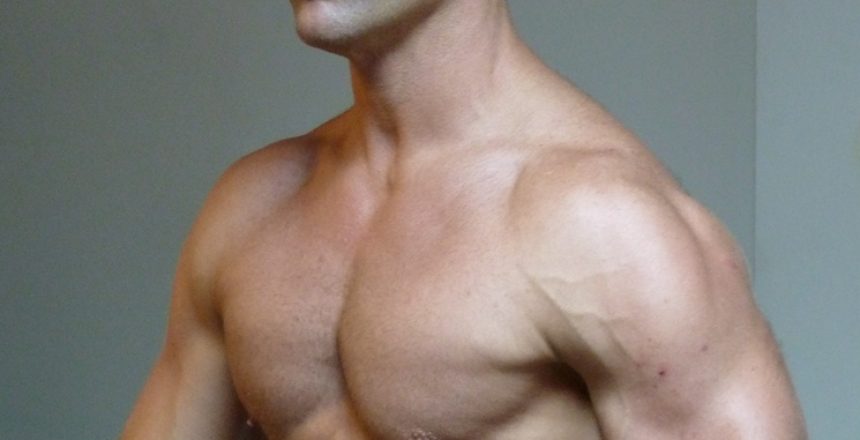



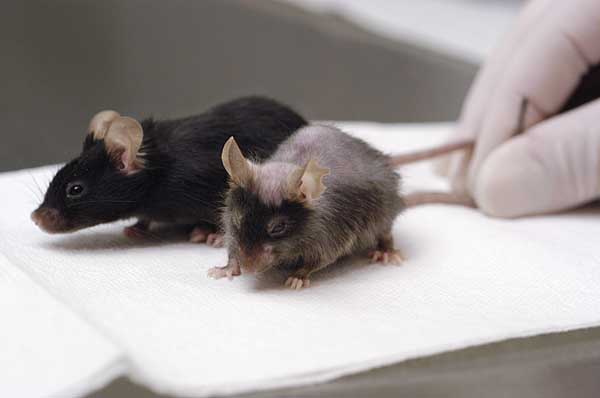
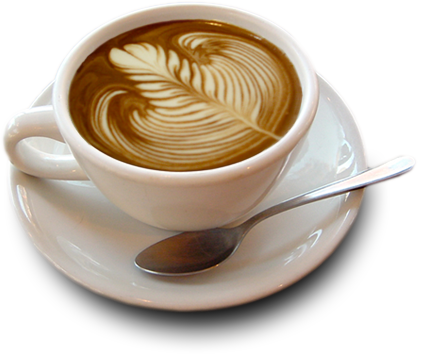


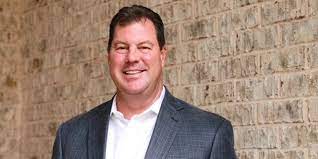




21 Comments
Really excellent post. I can’t come up with the studies off the top of my head but I’ll post them once I come across them but I remember IF being better for nutrient partitioning. Gross oversimplification: food goes to the muscles instead of your fat ass. I do know that many “pre-roids” era guys would use IF when cutting for competitions. Martin Berkhan from leangains.com has some good studies her references on the topic. Seriously excellent counter post to the Poliquin stuff.
Thanks, much appreciated. Certainly, ingested protein quickly goes to muscle after a deprivation. Muscle does not want to be lost.
Excellent and very timely article – thanks!
“I do dispute the contention that five or six small meals a day are necessary for optimal muscle growth, but on the other hand, going for 16 hours without food on a regular basis might not be best for that either.”
So what is your recommendation?
Seems that absolute amounts of food and calories, whether protein or any other macronutrient, are more important than timing. On regular days, which is the majority of the time, I usually eat 4 times, and I take a protein shake before workouts. I think you could easily eat less often as long as calories and protein are maintained.
Thanks!
Bought your book and will be going through it over the next week… looks great after a brief scan!
What is the best way to reach out to you for suggested topics you could cover? Of course you cannot (or don’t want to) cover all topics… but maybe some of your readers have some burning questions that may be good material for blog posts.
A question I have related to this post (and a follow up to my Vit C question):
what supplements would you recommend taking during the fasted state to maximize the benefits of fasting? Or, conversely, what would you not take? For example, Tim Ferris recommends Pu-erh Tea (“This is the tea I currently drink every morning, especially when experimenting with Intermittent Fasting (IF)” https://fourhourworkweek.com/2014/02/26/the-quarterly-goodies-voodoo-floss-pu-erh-tea-gypsy-music-and-more/ )… but I don’t see the scientific backing to this. Any thoughts of the subject of what to take (besides water) during fasting?
Thanks!
Bryan, thanks for buying the book, and good questions. What you take during IF to some extent depends on your reason for fasting. If for anti-aging purposes, do not take any BCAAs (or any other kind of protein). I covered that here: https://pdmangan.com/intermittent-fasting-for-fat-loss-or-anti-aging/ BCAAs abolish autophagy, which is the main anti-aging effect of IF. But if you’re doing it for fat loss only, BCAAs might be appropriate (but not required) in order to help preserve muscle. AFAIK, there’s no scientific backing for Ferriss’s special tea during fasting. However, caffeine in general does make a great appetite suppressant, so there’s that. Small amounts of fat, such as cream in coffee or MCT oil, are acceptable during a fast, as it will not raise insulin or abolish autophagy. As noted before, I’d stay away from antioxidants during a fast, as effects are unknown but possibly deleterious to a fast; other supplements, such as magnesium or vitamin D ought to be fine, no effect one way or another.
Thanks for the response.
One supplement I do experiment with during fasting (as per Martin Berkhan’s recommendation: https://www.leangains.com/2010/06/intermittent-fasting-and-stubborn-body.html ) is yohimbine. Have not seen you mention yohimbine – any thoughts on its use?
No, I have no experience with yohimbine and just learned about all I know about it from reading Berkhan’s post. Sounds reasonable, though.
Hi. Quick question. What if I go to the gym mainly to gain strength and not muscle mass? I like my weight where it is but I wouldn’t mind getting stronger and a little shredded. Nothing too crazy. I’ve tried IF for about two months and really liked it, but everywhere I checked on the net says it’s really not good if you’re strength training. There is so much info out there with a lot of it being confusing and contradictory.
If you’re not a newbie to weightlifting, increased muscle growth in response to a weight workout occurs for about 24 hours after the session. (Newbies, about 48 hours.) So to get the most benefit out of your workout, eat well, including enough protein, for at least 24 hours after the workout. Fasting can be done on off days, e.g. I work out once every 3 days, so I do my 16 hour fast only on the third day after the workout, i.e. one day before my next one. This is all my opinion of course, you’ll likely get different answers from others, especially dedicated bodybuilders. Hope that helps.
P.S.: If you found the advice useful, you might like to buy my book!
I think a lot of people may think that because you’re fasting 16 hours a day, you are unable to put on muscle. I’d consider this to be untrue.
Nutrition is most important in the short window of pre and post workout, and the calories you take in within an 8 hour window can be equal to those of one you would take in over the course of an entire day. Taking in surplus calories (usually no more than 300) above your maintenance level provides your body with enough nutrients to build muscle.
I find it curious that the Poliquin group recommend a paleo style diet, but don’t think about how people in paleolithic times would have eaten in terms of meal frequency (it probably wasn’t breakfast, lunch and dinner)
5-6 meals a day just seems absurd because you never have any time to feel hungry. You spend most of your time prepping, eating and cleaning. What normal people eat like this?
In regard to resistance training and life expectancy, it was shown that regular strength training was seen to have a shortening effect on your telomere length in human skeletal muscle. https://www.ncbi.nlm.nih.gov/pubmed/18091019
Lastly, in terms of body composition, they made no mention of calculating calories/macros in order to maintain a caloric deficit to lose weight. In their “lose weight for summer” article they only recommend the basic: remove processed food, eat smart fats, high protein, low glycemic index etc.
Great comment, thanks.
A little late to the party, but I’ll ask you this:
“And what causes mTOR to be activated? Food, for one thing, and carbohydrates and protein especially.”
If protein and carbohydrates both lead to this then what’s left to eat as a safer alternative?
Not much, but a low-carb ketogenic diet seems the best option to counteract aging, and may have the same effects as calorie restriction.